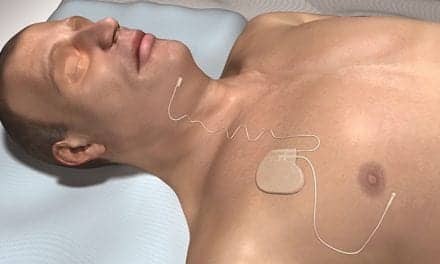A new study sheds light on links between arrhythmias, sudden cardiac mortality, and OSA.
By Lisa Spear
The link between obstructive sleep apnea (OSA) and poor cardiac function is well established. Untreated, severe OSA more than doubles a person’s risk of dying from heart disease. In many cases, anyone who comes to a hospital for atrial fibrillation, an irregular and often rapid heart rate due to chaotic electrical signals in the two upper chambers of the heart, will be referred to an outpatient clinic for a sleep study. There are many established links between diseases of the heart and sleep-disordered breathing, but not all arrhythmias and cardiac conduction disorders have been well studied.
To fill this gap in knowledge, researchers evaluated data from a large publicly available inpatient care database, The National Inpatient Sample, containing data from than 7 million hospital admissions. The results, published in the Cureus Journal of Medical Science, found that people hospitalized for arrhythmias and conduction disorders had a statistically significant, higher rate of mortality if they also had OSA. The study also showed a higher rate of cardiac arrest in patients with OSA versus patients without OSA.
“We found that obstructive sleep apnea had a profound effect on rhythm disorders, sudden cardiac death, hypoxia, bradycardia—you name it—it was associated,” says lead author Roshan Acharya, MD, an internal medicine specialist at Cape Fear Valley Medical Center in Fayetteville, North Carolina.
[RELATED: Managing the Epidemic of Obstructive and Central Sleep Apnea in Cardiology]
The researchers used statistical methods to evaluate 23,634,793 hospital discharge records over a three-year period. The work establishes one more link between heart conditions and OSA, which is already a widely studied area. Often times, CPAP therapy is the best course of treatment. One previous meta-analysis of 27 studies involving more than three million patients found that the risk of cardiovascular mortality was decreased to normal levels in people with sleep apnea who were treated with positive airway pressure therapy.
Acharya hopes that further research will be conducted to confirm that the harm caused by heart rhythm disorders can be mitigated with CPAP therapy. “The key message of this study is that OSA is not only associated with atrial fibrillation, but also all kind of cardiac arrhythmia and mortality, and CPAP might be beneficial for these populations,” says Acharya.
Lisa Spear is associate editor of Sleep Review.





